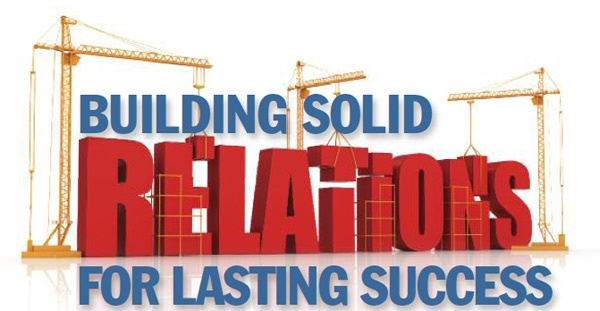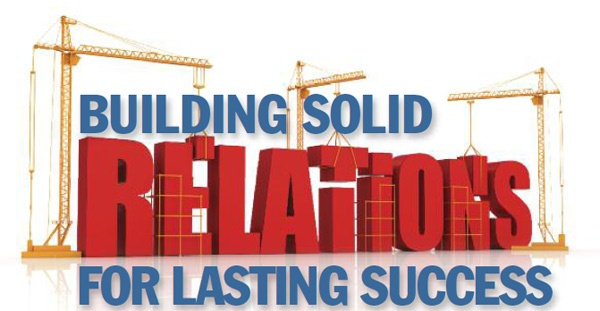
Time and again many have tried to master the art of building lasting relationships. Some have even written short novels and books indicating their beliefs of the core principles that lead to a solid relationship building foundation. Some of those readings reference statements such as, “Remember things that are important to others.” “Pay attention to the whole person.” “Ask the right questions, and become a great listener.” “Treat others the way you want to be treated.” “Honesty is the key to a successful relationship.” All of these statements are paramount in effective relationship building, but there are many other factors involved. I am a firm believer that forming strong relationships in every area of life is an essential component to success both personally and professionally.
The relationships you've formed with people in many different areas of your life can serve as a foundation for you creating strong future ties. It's always worthwhile to reflect on what truly makes a relationship last.
Forging solid relationships seems simple on the surface, but these ties require time, effort and tact. Developing and maintaining these connections can sometimes feel draining and even burdensome, but the rewards can be significant. A personal connection, whether developed over weeks, months, or years, can lead to positive word-of-mouth, increased sales, additional connections, job security, and personal satisfaction.
Here are 11 keys to help you develop and build lifelong relationships:
- Revolving Trust - Both parties have to trust each other mutually. Each party must know without doubt or question that the other party has their best interest in mind concerning all things.
- No one person or entity is more important than the other- Each must value the other equally. One can’t feel more superior to the other. As the old proverb says;
A servant is not greater than his master, nor a messenger greater than the one having sent him. Each must understand that for their relationship to work there should be an equilibrium.
- Open Communication- Each party must feel that at any time they can freely state how they feel regarding any issue or frustration will ensue. The doors should always be open in a solid relationship.
- Be there for each other- “When called upon, arrive!” It is vitally important to be there when you’re needed! Help each other thrive in all things. Be there for each other through the good times and also the bad times, but most importantly, just be there! Do not take this area for granted. Many relationships have broken, because one party was not there for the other in their time of need.
- Listen to each other - Express concerns and find ways to rectify them. Spend more time listening than talking. Find ways to become a better listener and to have a better understanding of what makes the other party happy and more successful.
- Be more interested in the other person than you are in yourself- People love talking about themselves; but when it comes to relationships, it has to be more about others than it is about you. The more you learn about others in the relationship, the more you build a special bond with them which enables you to exude your genuine care and support for that person.
7. Laugh together- Set aside all things to smile and laugh!
A recent study indicated that the mere act of smiling can help us deal with stressful situations more easily.
- KNOW what the other person needs without having to ask and provide it without expectation- Take time to learn about others involved in the relationship. Listen to their needs, understand their dreams, learn their fears, and help them with their motivations. This enables you to be a step ahead of the game when it comes to cultivating the relationship. If you know what one needs before they ask, it strengthens the bond and shows the other party in the relationship that not only do you care for them, you care about them, and you want to ensure that they are happy and successful.
- Learn each other’s likes – This is fundamentally important because it allows one to always have a conversation piece to speak about. Learning each other’s likes enables one to spend more time talking about different things and looking for commonalities in the relationship.
- Be consistent- I’m a firm believer on this philosophy- “How things began are how things end.” When the relationship first begins, follow through on what you say you are going to do. Don’t take shortcuts and don’t make promises you can’t keep. At times you will have to give the other party hard truths, but you’re only doing it for the better good, and they will understand that because trust was built up-front.
- Be genuine and positive, bring energy and have fun- Relationships require care and energy. No one wants to be around a Debbie Downer. When you’re spending time together, exude excitement as if it were going to be the last time you were going to see each other. Laugh, and enjoy each other.
Meaningful personal and professional relationships require significant time and effort to build. “Value the message, by always valuing the messenger,” and you’ll be on the fast track to creating lifelong successful relationships.




Enjoy this blog? Leave a comment or ask a question!